Rack-Mounted Energy Storage LiFePO4 Battery

ASP LiFePO4 Battery
48V 50AH/100AH/150AH/200AH
- LFP CelIs
- Easiest Installation
- OEM Brand
- Cells Cycle Times 4000-6000 Cycles
- Smart BMS
- Safety Protection
- Inverter Compatible
- CAN Bus Standard Connection
Pack modular design, strong universality, convenient installation, simple operation, indepen-dent maintenance, high reliability, safety, large space, conducive to ventilation and heat dissipa-tion, is the main component of household power supply, lithium iron phosphate battery has along life, enough stability, more security and other characteristics.
Technical Specifications
| Model | XPA-4850 | XPA-48100 | XPA-48150 | XPA-48200 |
| Standard Voltage | 48VDC | |||
| Voltage | 37.5-54.75VDC | |||
| Norminal Capacity | 50Ah | 100Ah | 150Ah | 200Ah |
| Rated Capacity | 2.4kWh | 4.8kWh | 7.2kWh | 9.6kWh |
| Commumication Protocol | CAN / RS485 / WIFI / 4G / Blue Tooth | |||
| Efficiency (at 0.5C) | 98% | |||
| Cell Self-Discharge | ||||
| Maximum Allowed Modules in Parallet | 15 (36kWh) | 15 (72kWh) | 15 (108kWh) | 15 (144kWh) |
| Depth of Discharge | Up to 100% | |||
| Useful Life | 8-10 Years | |||
| Cycle Life | 6000 (@ 80% DoD) | |||
| Protection | Over temperature, overcurrent, short circuit, over-charging, over-discharging, Low voltage | |||
| Charge Specifications | ||||
| Recommended Charge Current | 25A | 50A | 50A | 50A |
| Maximum Charge Current | 50A | 100A | 100A | 100A |
| Recommended Charge Voltage | 54V | 54V | 54V | 54V |
| Maximum Charge Voltage | 54.75V | 54.75V | 54.75V | 54.75V |
| Discharge Specifications | ||||
| Recommended Discharge Current | 25A | 50A | 50A | 50A |
| Maximum Discharge Current | 50A | 100A | 100A | 100A |
| Recommended Low Voltage Disconnect | 41.25V | |||
| Battery Low Voltage Protection | 39.75V | |||
| Battery Recovery Voltage | 45V | |||
| Mechanical Specifications | ||||
| Dimenstions: | 484*410*120mm | 484*410*178mm | 484*590*178mm | 484*590*178mm |
| Weight | 24.5kgs | 38.5kgs | 59kgs | 70.5kgs |
| Terminal Type | M6 | |||
| Case Material | Industrial Grade Iron | |||
| Enclosure Protection | IP20 | |||
| Installation | Cabinet | |||
| Cell Type Chemistry | LiFeP04 | |||
| Compliance Specifications | ||||
| Certifications | CE,FCC, CCC | |||
| Shipping Classification | UN 38.3, UN 3480, Class 9 | |||
| Temperature Specifications | ||||
| Discharge Temperature | -20~65℃ | -20~65℃ | -20~65℃ | -20~65℃ |
| Charge Temperature | 0~55℃ | 0~55℃ | 0~55℃ | 0~55℃ |
| Storage Temperature | -20~45℃ | -20~45℃ | -20~45℃ | -20~45℃ |

Intelligent BMS
intelligent battery management system
- Over heat protection
- Over current protection
- Short circuit protection
- Over charge protection
- Over voltage protection
- Voltage balance
- Prevent charge reverse
- Over discharge protection
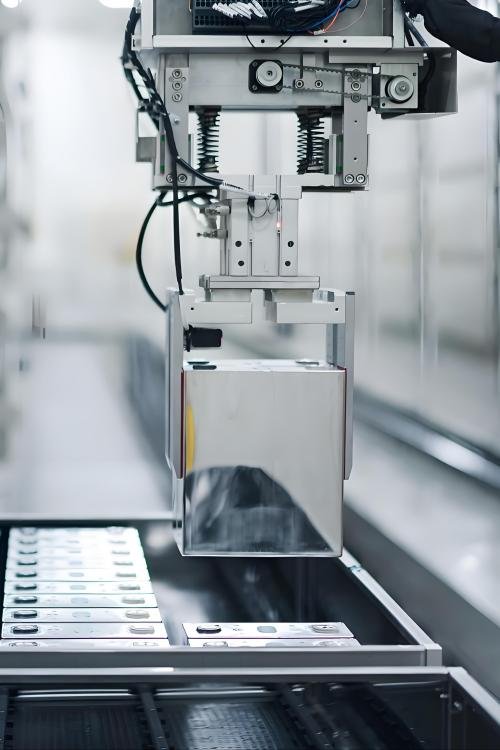
Advanced battery manufacturing technology
Dry Electrode Coating
Solvent-free process reducing energy use and waste.
Laser Welding
Precise, fast, and reliable tab and casing welding.
High-Precision Calendering
Ensures uniform electrode thickness for better performance.
AI-Driven Quality Control
Real-time defect detection for higher production yield.
Vacuum Electrolyte Infusion
Complete electrolyte penetration for improved stability.
Solid-State Integration
Safer, compact batteries with solid electrolytes.
more about ASP LiFePO4 Battery
At ASP, our LiFePO4 Battery factory uses advanced technology to ensure high-quality, reliable energy solutions. With a long precipitation time for optimal battery performance, we focus on safety and durability in every step of production. Our professional team follows strict quality standards to deliver batteries that offer excellent cycle life and dependable power. Trust ASP for safe, long-lasting LiFePO4 Batteries you can rely on.
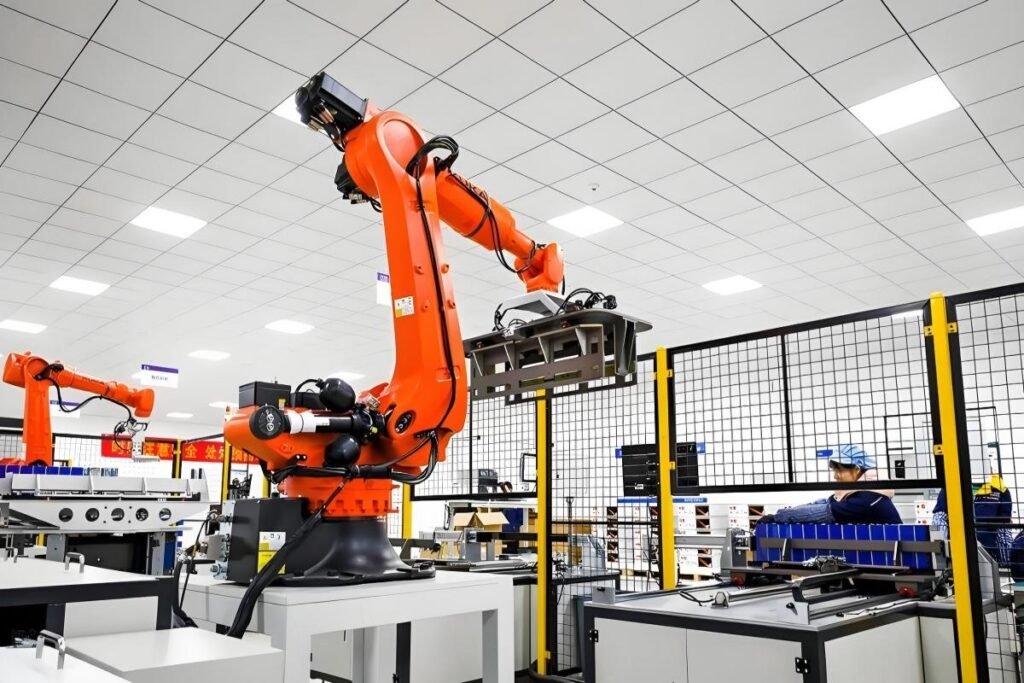





At ASP, we prioritize quality and compliance, and our LiFePO4 Batteries are fully certified to meet international safety and performance standards. Our batteries come with key certifications including CE, UL, ISO 9001, ISO 14001, RoHS, and IEC 62619, ensuring they meet the highest industry benchmarks. These certifications guarantee not only the safety and reliability of our products but also their efficiency and long-term performance. When you choose ASP, you’re choosing certified, high-quality LiFePO4 Batteries you can trust for your energy storage needs.

At ASP, we pride ourselves on our strong global presence, having participated in some of the most prestigious international exhibitions in the renewable energy and solar sectors. These events have provided us with invaluable opportunities to connect with industry leaders, showcase our premium Deye Hybrid Inverters, LiFePO4 Batteries, and other innovative energy solutions, and strengthen relationships with customers worldwide.。

At ASP, our commitment to providing high-quality Deye Hybrid Inverters and LiFePO4 Batteries has resulted in exceptional customer satisfaction across a wide range of industries and regions. With a presence in Europe, Southeast Asia, and Africa, our products have empowered businesses to improve their energy solutions, reduce costs, and achieve long-term sustainability.






Frequently Asked Questions
Our Rack-Mounted LiFePO4 batteries are designed for scalability. Each rack can hold up to 10 modules, allowing you to configure a system with a maximum total capacity of up to 100 kWh, depending on the individual module capacity. This flexibility allows you to tailor your energy storage needs, whether you’re looking for a smaller system for residential use or a larger one for commercial or industrial applications.
The energy density of our Rack-Mounted LiFePO4 battery is optimized for high performance in a compact form factor. It offers excellent space utilization compared to other rack-mounted solutions, with an energy density of approximately 150–180 Wh/L. This means you get more energy storage in a smaller footprint, making it ideal for installations with limited space while still providing a high total capacity.
Our Rack-Mounted LiFePO4 battery is compatible with most popular inverter systems, including models from brands like SMA, Fronius, and Victron. It is essential to confirm the voltage and communication protocol of your existing inverter to ensure seamless integration. In most cases, no additional components are required, although a communication interface for the Battery Management System (BMS) may be necessary. We can assist in verifying compatibility and guiding you through the integration process.
The installation process for our Rack-Mounted LiFePO4 battery system is straightforward and involves mounting the rack, connecting the modules, and integrating the battery with your inverter. We provide detailed installation manuals with step-by-step instructions. Additionally, we offer installation support via phone or email, and if required, we can recommend certified professionals to ensure proper setup and configuration.
Our Rack-Mounted LiFePO4 batteries come with a comprehensive set of safety features to ensure safe operation:
- Thermal Management: Integrated temperature sensors and active cooling mechanisms prevent overheating and ensure the system operates within safe temperature ranges.
- Overvoltage Protection: The Battery Management System (BMS) protects the battery by automatically disconnecting if the voltage exceeds safe limits.
- Overcurrent Protection: The BMS also detects any overcurrent situations and will limit the current flow to prevent damage.
- Short Circuit Protection: The system includes safety protocols that detect and protect against short circuits.
We offer a 5-year standard warranty on our Rack-Mounted LiFePO4 batteries, which can be extended up to 10 years, depending on the model and region. The warranty covers manufacturing defects, performance degradation (e.g., capacity loss beyond a certain threshold), and necessary repairs. If any issues arise during the warranty period, we will provide replacement modules or repairs as needed. Our goal is to ensure that your battery system performs optimally throughout its lifespan.
Rack-Mounted Energy Storage LiFePO4 Battery Buyer’s Guide
When purchasing a rack-mounted LiFePO4 energy storage battery, it’s important to consider key technical parameters such as usage scenarios, installation requirements, performance, and overall advantages. Below is a concise guide to help you make an informed decision.
Chapter 1
Usage Scenarios and Applications
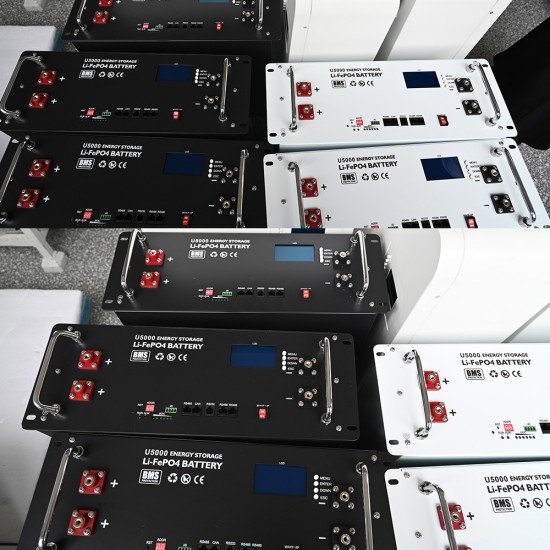
- Commercial and Industrial Energy Storage: Ideal for large-scale energy storage solutions in commercial buildings, industrial facilities, and enterprises, where space efficiency is a key concern.
- Data Centers and Backup Power: Perfect for providing backup power to critical infrastructure like data centers, telecom stations, and other facilities requiring uninterrupted energy supply.
- Renewable Energy Integration: Commonly used with solar or wind energy systems to store excess energy for later use, reducing dependency on the grid and maximizing the use of renewable energy.
Chapter 2
Installation and Space Requirements
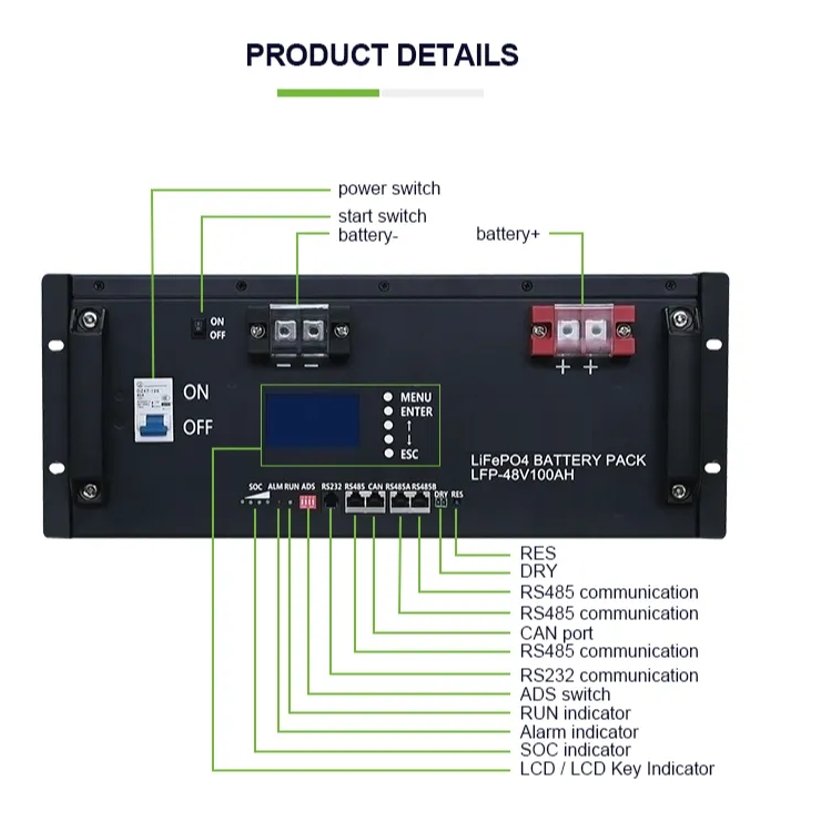
- Space Efficiency: Rack-mounted designs are optimized for large storage installations, allowing for high-density storage in data centers, utility rooms, and other areas with limited floor space.
- Modular and Scalable: Modular systems allow for flexible expansion. As energy needs grow, additional racks can be added without requiring significant changes to the existing setup.
- Flexible Installation: Can be installed in both indoor and outdoor environments (following manufacturer specifications). Ensure the area is well-ventilated to maintain optimal battery performance.
Chapter 3
Storage Capacity and Scalability
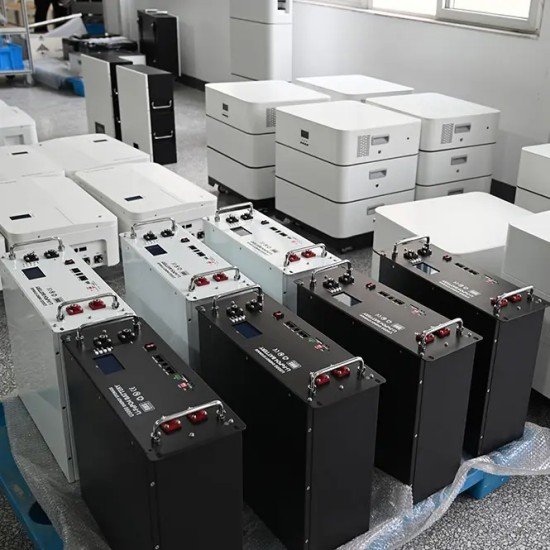
- High Capacity: Rack-mounted batteries typically offer larger storage capacities, ranging from 10kWh to 100kWh+ per unit, making them suitable for commercial and industrial applications.
- Scalability: The modular design allows for easy expansion by adding more units to meet future energy demands without replacing the entire system.
Chapter 4
Efficiency and Performance

- Energy Efficiency: LiFePO4 batteries generally offer high efficiency (90%-98%), ensuring minimal energy loss during charging and discharging, which is vital for maximizing energy savings.
- Long Cycle Life: Expect 3,000 to 5,000 charge cycles, providing long-term durability and reducing the need for frequent battery replacements.
- Low Self-Discharge Rate: These batteries have a low self-discharge rate, which means they can hold their charge for extended periods, making them ideal for backup and standby power.
Chapter 5
Safety and Reliability

- Battery Management System (BMS): Ensures safe operation by monitoring temperature, voltage, and charging/discharging cycles, and preventing overcharging, overheating, and deep discharging.
- Thermal Stability: LiFePO4 batteries are known for their enhanced safety features, being more resistant to thermal runaway compared to other lithium-ion chemistries.
- Durability: Rack-mounted LiFePO4 batteries are built to withstand harsh conditions and are typically rated for IP55 or IP65, providing dust and water resistance for both indoor and outdoor use.
Chapter 6
Price and Cost-Effectiveness
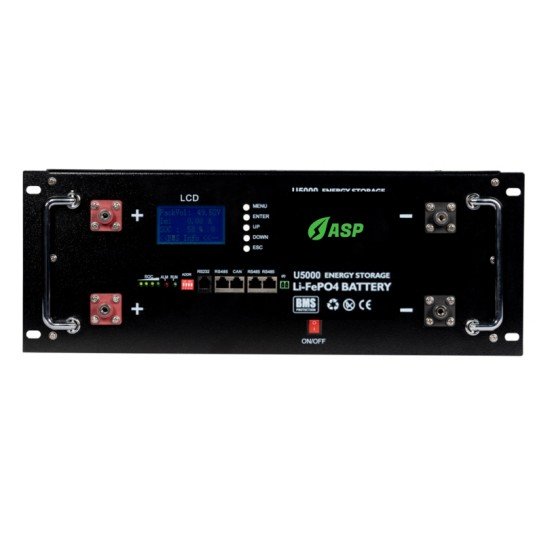
- Eco-Friendly Technology: LiFePO4 batteries are non-toxic, recyclable, and have a lower environmental impact compared to other lithium-ion batteries, making them an environmentally responsible choice.
- Support for Renewable Energy: These batteries contribute to sustainable energy solutions by efficiently storing renewable energy, thus reducing reliance on fossil fuels.
Chapter 7
Environmental Impact and Sustainability

- Eco-Friendly: LiFePO4 batteries are more environmentally friendly compared to other lithium-ion chemistries, as they are non-toxic, have a lower environmental impact, and can be recycled at the end of their life cycle.
- Sustainable Energy Solutions: By storing excess solar energy, these batteries help reduce reliance on fossil fuels and contribute to a cleaner, more sustainable energy future.
Chapter 8
Warranty and After-Sales Support
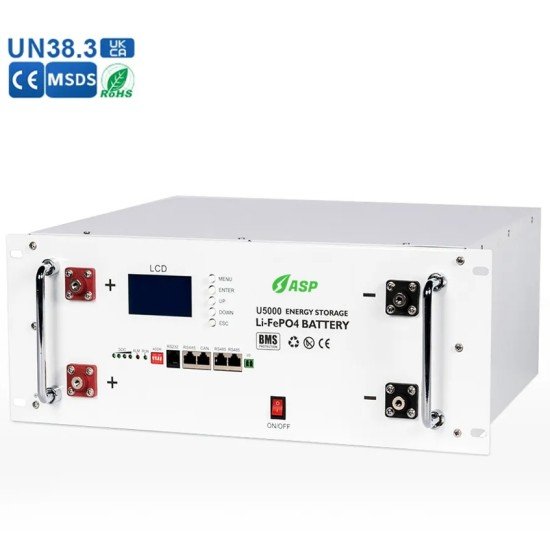
- Comprehensive Warranty: Most rack-mounted LiFePO4 batteries come with a 5-10 year warranty, which covers defects in material and performance issues, ensuring peace of mind.
- After-Sales Service: Reputable manufacturers offer reliable after-sales support, including access to spare parts, technical assistance, and troubleshooting resources to maintain system efficiency and performance.
Conclusion
This guide provides essential factors to consider when purchasing a Rack-Mounted Energy Storage LiFePO4 Battery, ensuring that you choose a solution that aligns with your energy storage needs, offers scalability, and delivers long-term efficiency, safety, and cost savings.


